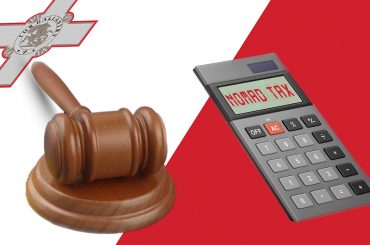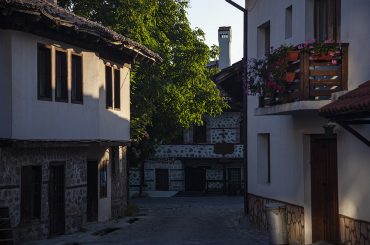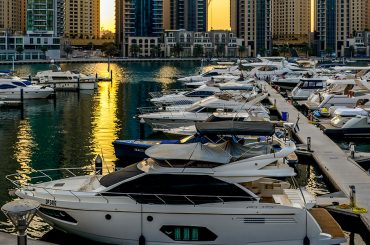Malta’s digital nomad residence scheme opens the door to potential tax avoidance by high earners, and also undermines another Maltese residence scheme called the Global Residence Programme, an investigation by this website has found out.
Figures given recently by Residency Malta, which runs the digital nomad residence scheme, show that the average salary of applicants is €60,000 – and that one in five earn more than €100,000 annually. Yet the rules preclude these nomad residence-holders from paying taxes in Malta, in contrast to residence-holders granted under the Global Residence Programme, a scheme that is run by the income tax department.
In the Global Residence Programme, grantees (including their their spouse and children) have to remit at least €100,000 in earnings to Malta every year and pay a minimum of €15,000 tax annually – 15 percent of their remittances. The €15,000-yearly minimum tax bill can be raised from members of nuclei family.
The rules of the nomad residence permit say that holders are not liable to income tax “in Malta since their employment is already taxed at origin and the permit is a temporary basis of stay.” Yet the duration of residence permit for nomads is as long as that of the Global Residence Programme, renewable every year, and under both schemes holders have to pay for health insurance. The only significant, practical difference in rules or situation between nomads who earn more than €100,000 – which are one in five – and global residence holders is that the latter are obligated to pay at least €15,000 yearly in tax while nomads are precluded from paying taxes.

In this way, since data suggests that the “nomads” that are takers of the nomad residence scheme tend to reside in Malta for a good chunk of the year, being precluded from paying taxes makes them an exception to Malta’s tax rules. Malta ordinarily taxes non-domicile residents on any foreign income remitted to Malta, and nomads would presumably have to move funds derived from foreign income to Malta for living costs. (Nomads cannot have income from local sources; global residence holders can have income from local sources, which would be taxed at 35 percent.)
I intend to get a proper visa for working and moving some of my business interests to Malta.
Nomad-residence holder
The point of the digital nomad visa, which was launched last June, was to tap into the growing worldwide market of digital nomads. But the low attractiveness of Malta for digital nomads – who tend to value community, favourable cost of living (known as geoarbitrage), nature, and do not need a residence permit – means that the bulk of takers of the nomad residency scheme are remote workers, not digital nomads.
Goncalo Hall, a digital nomadism thought leader who created the most successful digital nomad village in the world in Madeira, told this website that many governments, including Malta’s, have designed a “nomad visa that most nomads do not need.”
“Digital nomads do not need a residence permit,” he said, “remote workers do.”
Statistics published by Residency Malta show that almost half of nomad residence holders are self-employed, or own some kind of business, while the other half are employed but based remotely. These are the kind of people that tend to become residents.
This can be illustrated in the cases of two recipients of nomad residence permit identified by this website.
One of those, Mark Bateman, is a Briton who is a director of two small British companies, both of which are engaged in consultancy on businesses leadership, with one of them focused on fostering gender balance in top tier company positions. Bateman is the majority shareholder in one of the companies, and owns less than half the shares in the second.
Responding to questions by this website, Bateman said that, “as a digital nomad, I continue to pay taxes as normal in my home country.”

Another recipient of the nomad residence permit, a man called Daniel Thompson-Yvetot, is owner of a software company. Thompson-Yvetot featured in the article on Times of Malta (see feature picture in cutting). He told this website that his “Limited Liability Company pays its taxes on its income/losses in its tax domicile.”
Thompson-Yvetot is an American, but he has lived in Europe – apparently in France before he came to Malta, he still has a French mobile phone number – for years.
Neither Bateman nor Thompson-Yvetot answered a question on whether they earn less or more than €100,000.
There is no suggestion that either of them is doing anything wrong.
The €100,000 mark is the minimum amount that would have to be remitted to Malta under rules of the Global Residence Programme, which, as already pointed out, is taxed at 15 percent. And, as already pointed out, one in five nomad residence holders earn more than €100,000 yearly, but these are not obligated to remit anything to Malta and to pay income tax despite their residency status.

Most applicants for the nomad residence hail from the US, UK, and India. American tax systems are notoriously complicated or laborious, with Americans citizens ordinarily having to fill in yearly tax forms irrespective of whether they live in the US or not; Americans may also be liable to pay tax even if they are not resident.
The UK and India have a tax system similar to Malta’s residence-based taxation, which taxes international income only if the resident spends more than half of the yearly cycle living in the country. (The Maltese government ensures that this is so in the rules of the Global Residence Programme, which specifies that holders have to spend no less than 183 days living in Malta in every annual cycle and pay at least €15,000 annual tax – global residence permit, like nomad resident permit, has to be renewed every year.)
This means that, in the case of self-employed or freelance Indian and British nationals (including those employed on contract) whose income arises from non-Indian and non-British sources respectively, nomad residence-holders would not technically be liable to pay taxes in Malta or in their home countries. This situation is unremarkable or passable for digital nomads, who tend to move every few weeks or few months, but it becomes something approaching tax avoidance (or creative tax planning) for nomad residence holders who become – well – residents.
In his comments to this website, Daniel Thompson-Yvetot, an American and nomad residence-holder, said that he wants “to pay taxes in Malta.”
“I intend to get a proper visa for working and moving some of my business interests to Malta,” he wrote in an email. “I really very much like it here and want to give back.”
Last January the government said that it is drafting a new residence scheme for entrepreneurs.
This article is the second of four articles into Malta's citizenship and residency schemes – you can read the first by clicking here. The third article lifts the lid on the permanent residence scheme, whose grantees number more than the population of the capital Valletta.
Featured image credit: iStock.com/Zerbor





